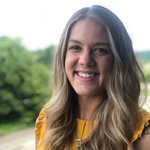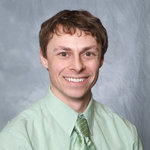



A woman came into Open Cities Health Center (OCHC), 409 N Dunlap St., St. Paul, crying. She had just lost her job and didn’t know how she’d pay for the insulin she needed.
Without insurance, a subscription to insulin for as little as 90 days could cost thousands of dollars. According to a Washington Post investigation, rationing insulin and deaths related to going without insulin have increased in the U.S. as insulin prices have increased.
At Open Cities Health, the woman was able to receive a subscription to insulin for $88.
OCHC has been open to the community for more than 50 years. It provides health services such as chiropractic, medical, behavioral health, eye health, dental, and social services. Patients are never turned away based on their inability to pay. Open Cities Health has a “sliding fee” option. Patients are encouraged to work with billing staff to create a payment plan that works for them. They see patients from infancy into old age and now offer COVID-19 testing as well.
“I didn’t know where else to go,” Miguel Sanchez, a patient at OCHC, said. “I was talking to a nurse who recommended Open Cities Clinic, and I thought it was too good to be true.”
Sanchez has been a patient at OCHC for three years. He has glaucoma, a condition that damages the optic nerve in the eye. Without treatment, Sanchez would’ve likely become blind. Before coming to Open Cities Health, Sanchez was turned away because he couldn’t pay. With only a part-time job and without insurance, Sanchez mentioned feeling as if he had no other options besides living with the condition.
At Open Cities Health, Sanchez was able to receive treatment at no cost. Some, however, worry that without the incentive of getting paid more doctors will not spend as much time on their patients or give less dignified care. Matthew Bauer, an eye doctor at OCHC, strongly disagrees.
“I do not believe we should get paid based on the number of things we do,” Bauer said. “I think we should get paid based on the care we give people.”
Bauer has been working at Open Cities Health for 11 years. He started the eye clinic at the Frogtown location and helped grow it into the six exam rooms that it is today. Now, two other eye doctors are working at OCHC, and they started a program in order to teach medical students the line of practice. Now, COVID-19 has limited how much the clinic can do. Face shields, masks and distancing protocols make in-patient care more difficult.
The pandemic has created more obstacles than just following guidelines for the clinic. Even though more people may need affordable healthcare currently, the clinic has been seeing fewer patients. Before the pandemic, Bauer would see 60 patients a week on average; now he sees around 40.
“If we’re not taking care of as many people, there’s less funding available to us,” Bauer said.
According to OCHC’s Chief of Strategic Development, Summer Johnson, funding primarily comes from the number of patients being seen, the government and donations. This is, however, not the first time that OCHC has struggled with money. According to an investigation by the Pioneer Press, the clinic faced significant financial difficulties at the end of 2019. The organization had “been struggling under the weight of long-standing erroneous financial practices, operational inefficiencies and staffing shortages,” according to Johnson.
“Through strategic reorganization, operational changes to enhance efficiency, key partnerships and philanthropic support, we were able to stay open and continue to serve the 10,000 patients a year that rely on our services,” Johnson said.
Along with improving how Open Cities Health functions, federal stimulus and donations have helped the clinic continue to stay open throughout the pandemic. All donations go directly to patient care. Donations can be made at opencitieshealth.org/donate.
In looking toward the future, Open Cities Health is making plans to sustain financial strategy long-term.
“We are the healthcare safety nets of our communities and we fight every day for the vulnerable and under-served,” Johnson said. “While these may seem turbulent times; nonetheless, we remain committed to our mission of ensuring we are a constant, trusted resource in this community.”
Bauer recalled that an older man had come into the clinic a few months prior. His vision had drastically declined over the years and had been declared legally blind. He told Bauer that he had given up hope after being turned away from other doctors because he was unable to pay his bill. The man was able to receive eye surgery at Open Cities Health Center, and his vision improved all the way back up to 20/20.
“We really try to make people feel like their concerns are valid… and treat them like a human being that deserves the right to health care,” Bauer said.
Comments
No comments on this item Please log in to comment by clicking here